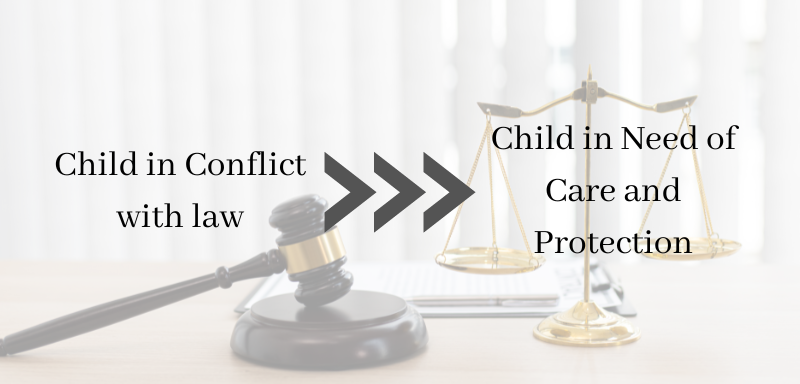
The Centre for Child and the Law, as part of a project on “Strengthening Nutrition Governance in India-A Critical Evaluation of Status and Implementation of the Grievance Redressal Mechanism under NFSA,2013”, had an opportunity to engage with members of the Meghalaya State Food Commission. The meeting facilitated interactions with district grievance redressal officers, department officials and nodal officers belonging to the Department of women and child development, education, food and civil supplies.
The visit also provided an opportunity to visit two model centres under the Public Distribution System and Integrated Child Development Services.

The Juvenile Justice (Care & Protection of Children) Model Rules, 2016 requires Social Investigation Reports (SIRs) to be prepared for children once they are apprehended. An SIR is a comprehensive report containing information pertaining to the child’s economic, social, psycho-social background and other relevant factors, and the recommendations thereon. It serves as a tool to aid stakeholders in the system including social workers and the Juvenile Justice Boards (JJBs) in understanding the circumstances under which the alleged offence was committed.
Till date, CCL has conducted 28 SIRs. Working with the children and their families to prepare SIRs has provided us with insights into the importance of these tools and how they need to be administered. We’ve learnt that the first step is to make the family and the child aware about the nature and purpose of SIRs. We have observed that the dearth of awareness of the JJ Act procedures coupled with the lack of communication with the lawyer in many cases, leaves the family with almost no knowledge about the magnitude of this document. To create an effective SIR encompassing the child’s psychosocial background, it is important that rapport and trust is built and more importantly, the family and child feel safe, secure and comfortable. It is also important to ensure that the power dynamics between us and the family (and child) do not come into play.
Our SIR experiences have allowed us to understand that we should be seen as enablers and facilitators to reduce the “us and them” divide. Through the SIRs, the importance of letting the child’s family vent their emotions within a safe space to express their feelings, hardships etc., has also been felt. A lot of hidden messages and psychosocial issues can emerge from this expression. Hence, social workers must not restrict themselves to the questions in the SIR and allow for conversations beyond that structure to gain useful information relevant to the SIR and further, help in devising effective interventions.
Apart from preparation of SIRs, CCL also plans to work to build capacities of social workers and probationary officers to ensure these children are supported with comprehensive care and interventions through effective SIRs which encompasses their psychosocial circumstances and backgrounds.

In March 2022, CCL set up a help desk at the Observation Home (OH). The OH is a temporary place where children in conflict with the law are placed after being apprehended by the police. A couple of weeks after routinely being present at the home, we were approached by a 16 year old boy (H) who was kept in custody since March 3, 2022. H was unaware of what was happening in his case, and had not been produced before the Juvenile Justice Board. After speaking to stakeholders in the system we learnt that H had three petty cases against him in three different jurisdictions.
H had been assigned a legal aid lawyer only in one of the three cases – he lacked representation in the other two. His lawyer had not filed the bail application as H was orphaned – he didn’t have a guardian to vouch for his security. Eventually we took up legal representation and managed to energise the relevant provisions in the law to close H’s case. We additionally petitioned the Board to declare H as a child in need of care and protection, a term relegated to children without family support, children facing homelessness, trafficking, forced into child labour or affected by calamaties.
The Juvenile Justice (Care and Protection of Children) Act, 2015 heavily relies on the role of the child’s family in securing their bail as well as to participate in their rehabilitation process, post release. In doing so, it tends to disadvantage children like H who are deprived of access to their family or their community. According to the NCRB data, 128 children in conflict with the law were homeless at the time of their apprehension in 2019. While the text of the law recognises that a child in conflict with law can also be a child in need of care and protection, in reality the system is ill – equipped to deal with these children. H’s case was demonstrative of this.



